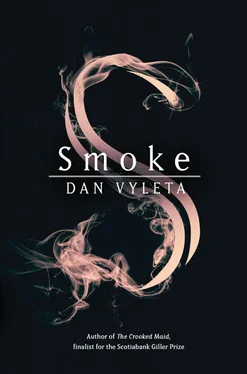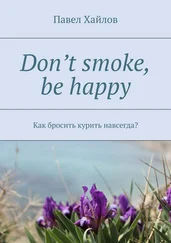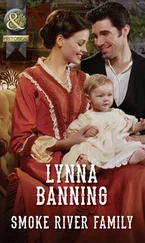Charlie looks about the compartment, seeks out the faces of the other teachers. All but Trout and Swinburne have joined the Trip; as they roll into the station, back in school the lower-class boys are locked in the refectory, spending the day in silent study. Foybles, the maths teacher, sits on a bench to Charlie’s left. He is fingering a tin of sweets, nervously shoving one into his mouth. It is typical of him that he does not offer any to the student sitting next to him. Charlie, for one, could have used something to take the dry out of his throat.
ф
The doors do not open at once. At another time, in another place, this would have caused complaints and unrest, threescore students wriggling on their bottoms. But the compartment remains as quiet as a grave. Everyone is staring out the window. The platform outside is full of people. There are porters in dirty frock coats holding baggage wagons. Old men, so Soot-covered, their sweat leaves tracks on their temples and cheeks; labourers with tools slung over one shoulder. There is a woman so little dressed it makes Charlie’s blood shoot to his face. He looks away and still sees the curve of her white leg disappearing into the long slit of her dress; tastes Smoke on his tongue. Don’t , he exhorts himself.
He finds it’s easier when he speaks.
“If London is full of criminals,” he whispers to Thomas, who remains glued to the window, “and Smoke begets Smoke, would it not be better if people left the city?”
Thomas does not turn when he speaks.
“Perhaps they don’t want to leave,” he says.
“We could make them.”
“We?”
“All I mean is — if they lived in the country, in the fresh air. . They can’t all be criminals. Sinners, maybe, but not criminals. Some of them are good at heart.”
Thomas turns to him at last. It is a shock to discover how angry he looks.
“And who would work in the factories then? And operate the shipyards? That’s what London is, you know. A collection of work yards, around which there’s some housing.”
“How do you know all this?”
“Me ma,” Thomas says, a burr of accent surfacing in his voice. He shakes himself like a dog, spits a mouthful of Smoke. “She used to write political pamphlets, in protest. But look — they’re opening the doors. Let’s go.”
ф
There can be no hope of walking in formation. If the platform was full, London’s streets are packed. The din is almost as bad as the Smoke: a whole city shouting, or so it seems. Costermongers roam the streets with their handcarts, parting the stream of people like rocks in a river. They sell coconuts, ropes, and petticoats, Soot-smeared and drooping; nails, sewing needles, and hard-boiled sweets; medicine, gunpowder, and coal. Drunks and beggars line the house fronts, slumped against the plaster; they display mangled limbs and open sores, or simply sleep away their stupor. Children dart through the press of the crowd, some in play, some loaded with goods for delivery or sale. The street is made of black muck five inches deep, soggy with meltwater. It takes Charlie a while to realise that it consists of Soot, deposited over decades and centuries. It clings to his shoes as though it were glue. The house fronts are smeared with it to a height of three or four yards: above this, dark brick shines through or else the dappled yellow of sandstone.
Every few minutes the boys are jostled by some person, man or woman, elbowing their way past. Twice Charlie feels hands in his coat and trouser pockets, looking for pickings. He does not try to catch the thief. His pockets are empty anyway. Ahead Renfrew has raised a walking stick high into the air. The boys — isolated, walking in groups of two, or three, or four; drops in the wash of hostile people — keep their eyes trained on this stick. To lose it would mean to risk losing the group. The way back . As Smoke sinks into Charlie’s lungs this fear transforms into something darker. When another passerby brushes him with his elbow, Charlie pushes him away. All his weight is in the push; the man, old and walking on a withered leg, slips and collides with others. The feeling of triumph that washes over Charlie only erodes when he notices the threads of Smoke that curl out of his coat and shadow him down the road.
Nor can there be any pretence that Renfrew is choosing their route. Tall, self-possessed, formidable though he is, the Master of Smoke and Ethics is, like all of them, subject to the tidal swell that governs the crowd. For there is a definite movement to this stream of people, a movement that can be briefly resisted but not reversed. It leads them across the river, which lies beneath the bridge like a smear of tar. Foybles passes Charlie, his handkerchief pressed to his face.
“Raw sewage,” the maths teacher mutters in horror to himself. “They are pumping their cesspools straight into the river.”
Indeed the water smells like the distillation of a hundred latrines. Even so, boats and ferries part the muck, and a group of women stand on the riverbank, sifting its mud with bare hands for baubles, lost pennies, cockles, and crabs.
They arrive. It is a square of irregular proportions, large enough to hold several thousand people and filled with their heat. The haze is so thick here, it feels like night is falling, though the afternoon is young. The sun stands high above, dirty pink behind this veil of sin. But it isn’t the tinted sun that’s making people crane their necks. A platform has been erected at the centre, a good two yards off the ground. From it springs a gallows. Its noose frames an oval of dirty sky. The crowd stares at it with a reverence otherwise reserved for the cross. Even the noise is hushed here in the square.
“An execution?” Charlie whispers, not wishing to believe his eyes.
“Yes.” Thomas’s eyes look wild. His throat and face show streaks of Soot. There is no telling if it is his own. “And there’s the executioner.”
It takes Charlie some moments to identify whom he means. The crowd shares his confusion. The man who clambers up the platform is not tall nor powerfully built; wears no hood of either black or scarlet; he has not bared his chest over a thick leather belt, and no gristle frames his manly chin. In fact, he is rather slight and knock-kneed, with light, bushy whiskers that stick to his pale cheeks as though they are glued on. He is wearing a frock coat, quite clean given the circumstances, and raises his top hat shyly to the crowd.
“A gentleman?” Charlie asks, surprised and dismayed.
“His Majesty’s servant,” Thomas whispers. On his face horror mingles with expectation. Charlie feels it, too. They will watch someone die. His eagerness sickens him.
It’s the Smoke , he tells himself.
If so, it is a perversity shared by all.
The victim arrives. For the longest time nobody can see anything other than the tall hats of the guards. The crowd parts reluctantly, letting them through, along with the prisoner hidden in their midst: a jostling that is passed on, from shoulder to shoulder, hip to hip, through the length and the width of the square. At long last the guards reach the ladder leading up to the platform. Smoke rises from their knot of bodies, dark and oily, like they are burning bits of rubber. Shouts are heard, the cry of pain. Then someone is lifted up, bloody and smoking, her body a sheet of paper blotched with black.
“A woman,” Charlie gasps. He staggers under the surge of people starting forward.
She is no longer young, and dressed in a white, ankle-length shift. Across the distance it is difficult to get a precise sense of her features. Big, round cheeks; a heart-shaped face; a mass of greying hair pulled back sharply from the forehead: this is all Charlie makes out. Her Smoke has stained her, face and clothes, but it is as nothing compared to what happens next. The guards position her under the noose; the executioner slips it around her head. He is talking to her, quietly and intently. They are the same age, give or take; they could be man and wife. Just then the crowd starts a chant, “Murderer, murderer”: not for him, who is about to send her to her death, but for her and the crimes she has committed. She turns to the crowd, raises her arms. And all of a sudden she seems to be burning, her skin an oil slick set ablaze on water. Black, sticky Smoke seeps from her every pore. In a moment the plain white shift is black and sodden, clinging to her chest, her hips, her legs. The Smoke slithers up the executioner’s body like a living thing. The transformation is immediate: a wolfish snarl grows over his face; his fingers, still on the noose, grab her hair and tug at it, and he starts screaming something at the crowd, triumphant and cruel.
Читать дальше












